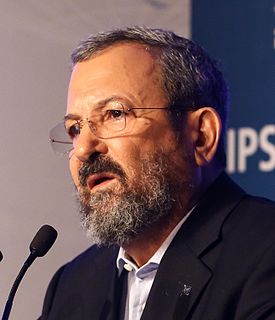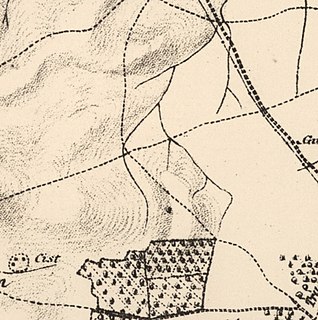
The Book of Chronicles is a Hebrew prose work constituting part of Jewish and Christian scripture. It contains a genealogy starting from Adam, and a narrative of the history of ancient Judah and Israel until the proclamation of King Cyrus the Great.

The Book of Jeremiah is the second of the Latter Prophets in the Hebrew Bible, and the second of the Prophets in the Christian Old Testament. The superscription at chapter Jeremiah 1:1–3 identifies the book as "the words of Jeremiah son of Hilkiah". Of all the prophets, Jeremiah comes through most clearly as a person, ruminating to his scribe Baruch about his role as a servant of God with little good news for his audience. His book is intended as a message to the Jews in exile in Babylon, explaining the disaster of exile as God's response to Israel's pagan worship: the people, says Jeremiah, are like an unfaithful wife and rebellious children, their infidelity and rebelliousness made judgment inevitable, although restoration and a new covenant are foreshadowed. Authentic oracles of Jeremiah are probably to be found in the poetic sections of chapters 1–25, but the book as a whole has been heavily edited and added to by the prophet's followers and later generations of Deuteronomists. It has come down in two distinct though related versions, one in Hebrew, the other known from a Greek translation. The date of the two can be suggested by the fact that the Greek shows concerns typical of the early Persian period, while the Masoretic shows perspectives which, although known in the Persian period, did not reach their realisation until the 2nd century BCE.

The Kingdom of Israel and the Kingdom of Judah were two related Israelite kingdoms from the Iron Age period of the ancient Southern Levant. After an emergent and large polity was suddenly formed based on the Gibeon-Gibeah plateau and destroyed by Shoshenq I in the first half of 10th century BCE, a return to small city states was prevalent in the Southern Levant, but between 950 and 900 BCE another large polity emerged in the northern highlands with its capital eventually at Tirzah, that can be considered the precursor of the Kingdom of Israel, which was consolidated as an important regional power by the first half of the 9th century BCE, before falling to the Neo-Assyrian Empire in 722 BCE. Israel's southern neighbor, the Kingdom of Judah, emerged in the second half of 9th century BCE, and later became a client state of first the Neo-Assyrian Empire and then the Neo-Babylonian Empire before a revolt against the latter led to its destruction in 586 BCE. Following the fall of Babylon to the Achaemenid Empire under Cyrus the Great in 539 BCE, some Judean exiles returned to Jerusalem, inaugurating the formative period in the development of a distinctive Judahite identity in the province of Yehud Medinata.

Jerusalem is a city in the Middle East, on a plateau in the Judaean Mountains between the Mediterranean and the Dead Sea. It is one of the oldest cities in the world, and is considered holy to the three major Abrahamic religions—Judaism, Christianity, and Islam. Both Israel and the Palestinian Authority claim Jerusalem as their capital, as Israel maintains its primary governmental institutions there and the State of Palestine ultimately foresees it as its seat of power; however, neither claim is widely recognized internationally.

Yahweh was the national god of the kingdoms of Israel (Samaria) and Judah, with origins reaching at least to the early Iron Age and apparently to the Late Bronze Age. In the oldest biblical literature he is a storm-and-warrior deity who leads the heavenly army against Israel's enemies; at that time the Israelites worshipped him alongside a variety of Canaanite gods and goddesses, including El, Asherah and Baal, but in later centuries El and Yahweh became conflated and El-linked epithets such as El Shaddai came to be applied to Yahweh alone, and other gods and goddesses such as Baal and Asherah were absorbed into the Yahwistic religion.

According to the Hebrew Bible, the Tribe of Judah was one of the twelve Tribes of Israel.

Ehud Barak is an Israeli general and politician who served as the tenth Prime Minister from 1999 to 2001. He was leader of the Labor Party until January 2011. He previously held the posts of Minister of Defense and Deputy Prime Minister under Ehud Olmert and then in Benjamin Netanyahu's second government from 2007 to 2013, as he retired from politics at the end of the tenure, though he returned in June 2019 with the formation of a new party.

Khirbat al-Jawfa' was a Palestinian Arab village that was depopulated during the 1948 Arab–Israeli war.

The Wolf Prize is an international award granted in Israel, that has been presented most years since 1978 to living scientists and artists for "achievements in the interest of mankind and friendly relations among people ... irrespective of nationality, race, colour, religion, sex or political views."
The Wolf Prize in Mathematics is awarded almost annually by the Wolf Foundation in Israel. It is one of the six Wolf Prizes established by the Foundation and awarded since 1978; the others are in Agriculture, Chemistry, Medicine, Physics and Arts. According to a reputation survey conducted in 2013 and 2014, the Wolf Prize in Mathematics is the third most prestigious international academic award in mathematics, after the Abel Prize and the Fields Medal. Until the establishment of the Abel Prize, it was probably the closest equivalent of a "Nobel Prize in Mathematics", since the Fields Medal is awarded every four years only to mathematicians under the age of 40.

Merneptah or Merenptah was the fourth pharaoh of the Nineteenth Dynasty of Ancient Egypt. He ruled Egypt for almost ten years, from late July or early August 1213 BC until his death on May 2, 1203 BC, according to contemporary historical records. He was the thirteenth son of Ramesses II, only coming to power because all his older brothers had died, including his full brother Khaemwaset or Khaemwase. By the time he ascended to the throne, he was probably around seventy years old. His throne name was Ba-en-re Mery-netjeru, which means "The Soul of Ra, Beloved of the Gods". He is the first king of Egypt to be identified as "pharaoh", when the term previously used for the royal palace began to be used as the title for the king by his contemporaries.

Sabich or sabih is an Israeli sandwich of pita or laffa bread stuffed with fried eggplant, hard boiled eggs, Salat Chatzutz, parsley, amba and tahini sauce. Its ingredients are based on a traditional Shabbat breakfast of Iraq. Sabich is sold in many businesses throughout Israel.

Jachnun or Jahnun is a Yemenite Jewish pastry, originating from the Adeni Jews, and traditionally served on Shabbat morning. Yemenite Jewish immigrants have popularized the dish in Israel.
Unit 8200 is an Israeli Intelligence Corps unit of the Israel Defense Forces responsible for collecting signal intelligence (SIGINT) and code decryption. Military publications include references to Unit 8200 as the Central Collection Unit of the Intelligence Corps, and it is sometimes referred to as Israeli SIGINT National Unit (ISNU). It is subordinate to Aman, the military intelligence directorate.

Israel, officially known as the State of Israel, is a country in Western Asia, located on the southeastern shore of the Mediterranean Sea and the northern shore of the Red Sea. It has land borders with Lebanon to the north, Syria to the northeast, Jordan on the east, the Palestinian territories of the West Bank and the Gaza Strip to the east and west, respectively, and Egypt to the southwest. Israel's economic and technological center is Tel Aviv, while its seat of government and proclaimed capital is Jerusalem, although international recognition of the state's sovereignty over Jerusalem is limited.

Abu al-Fadl was a Palestinian village in the Ramle Subdistrict, about 4 km (2.5 mi) northwest of Ramla in, what was until 1948, Mandatory Palestine. The village was also known as al-Satariyya. In 1945/44, the village had a population of 510.

Edom was an ancient kingdom in Transjordan located between Moab to the northeast, the Arabah to the west and the Arabian Desert to the south and east. Most of its former territory is now divided between Israel and Jordan. Edom appears in written sources relating to the late Bronze Age and to the Iron Age in the Levant, such as the Hebrew Bible and Egyptian and Mesopotamian records.

In January and February 2009, there was a series of two air strikes in Sudan and one in the Red Sea, allegedly conducted by Israel against Iranian arms being smuggled to the Gaza Strip through Sudan. The Israeli government hinted that Israeli forces were involved in the incident.

Khirbat Al-Mansura was a Palestinian village in the Haifa Subdistrict. It was probably depopulated during an offensive by the Carmeli Brigade at the end of April 1948. It was located 18.5 km southeast of Haifa with a mostly Druze population. Khirbat Al-Mansura contained the ruins of building foundations and rock-cut tombs.

The Oslo Accords are a pair of agreements between the Government of Israel and the Palestine Liberation Organization (PLO): the Oslo I Accord, signed in Washington, D.C., in 1993; and the Oslo II Accord, signed in Taba, Egypt, in 1995. The Oslo Accords marked the start of the Oslo process, a peace process aimed at achieving a peace treaty based on United Nations Security Council Resolutions 242 and 338, and at fulfilling the "right of the Palestinian people to self-determination." The Oslo process started after secret negotiations in Oslo, resulting in the recognition by the PLO of the State of Israel and the recognition by Israel of the PLO as the representative of the Palestinian people and as a partner in negotiations.















